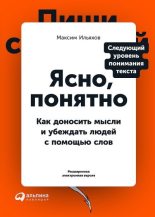- 1
- 2
- 3
- 4
- 5
- . . .
- последняя (164) »
статьям, содержащим искомое слово. Таким образом, слово chin (подбородок) сопровождается фразами, в которых Вы найдете слово chin, таких как keep one's chin up, stick one's chin (or neck) out, take out, take it on the chin, up to the chin.
Указатели частей речи
Лексемные идиомы, которые мы обсуждали раньше, сопровождены указателем части речи. В некоторых случаях, таких, как, скажем, в случае предложных фраз, употреблен двойной указатель, потому что данная фраза имеет два грамматических употребления. Буква <v.> значит verb (глагол); она напечатана в фразах, содержащих глагол и наречие, или глагол и предлог, или все три, то есть глагол, предлог и наречие. Сокращение <v. phr.> означает "verbal phrase" как, например, look up, look in и т.д., то есть сочетание глагола с существительным: глагол с дополнением, глагол с подлежащим и глагол с предложной фразой.
Ограничительные указатели
Иностранцу, для которого американский английский - неродной язык, следует обратить особое внимание на то, в какой ситуации какую идиому можно употреблять. В этом читателю словаря помогут ограничительные указатели. Так, указатель <slang> (слэнг) показывает, что идиома употребляется только в фамильярном разговоре очень близкими друзьями. Указатель <informal> (неформальный) показывает, что выражение может употребляться в разговоре, но не должно встречаться в формальных сочинениях. Указатель <formal> (формальный) имеет противоположное значение: он указывает, что форма употребляется только в научных работах или при чтении лекции в университете. Указатель <literary> (литературный) напоминает, что интересующая Вас идиома - широко известная цитата; ее не стоит употреблять слишком часто. Указатель <vulgar> (вульгарный, грубый) показывает, что Вам не следует употреблять эту форму. Однако, иметь представление о подобных формах необходимо, чтобы иметь возможность судить о людях по языку, который они употребляют. Указатель <substandard> (не соответствующий языковой норме) показывает, что форма употребляется малообразованными людьми; <non-standard> (нестандартный) значит, что фраза неуклюжая. Указатель <archaic> (архаический) редко употребляется в этой книге; он означает, что форма очень редка в современном английском языке. Географические указатели показывают, где идиома образовалась и где употребляется. <Chiefly British> (главным образом британское) значит, что американцы редко употребляют эту форму; <southern> (южный) значит, что идиома употребляется чаще на юге США, чем на севере. Молодые формы, которые образовались не более шести или семи лет назад, находятся в приложении к главному словарю.
Adam Makkai
Maya Aleksandrovna Glinberg
A
[abide by] <v.> To accept and obey; be willing to follow. * /A basketball player may know he did not foul, but he must abide by the referee's decision./ * /The members agree to abide by the rules of the club./
[a bit] <n., informal> A small amount; some. * /There's no sugar in the sugar bowl, but you may find a bit in the bag./ * /If the ball had hit the window a bit harder, it would have broken it./ - Often used like an adverb. * /This sweater scratches a bit./ - Also used like an adjective before "less", "more". * /Janet thought she could lose weight by eating a bit less./ * /"Have some more cake?" "Thanks. A bit more won't hurt me."/ - Often used adverbially after verbs in negative, interrogative, and conditional sentences, sometimes in the form "one bit". * /"Won't your father be angry?" "No, he won't care a bit."/ * /Helen feels like crying, but I'll be surprised if she shows it one bit./ - Sometimes used with "little" for emphasis, also in the emphatic form "the least bit". * /"Wasn't Bob even a little bit sorry he forgot his date?" "No, Bob wasn't the least bit sorry."/ Syn.: A LITTLE. Compare: A FEW. Contrast: A LOT.
[about face] <n.> A sudden change of course or a decision opposite to what was decided earlier. * /Her decision to become an actress instead of a dentist was an about face from her original plans./
[about one's ears] or [around one's ears] <adv. phr.> To or into complete collapse, defeat, or ruin; to the destruction of a person's plans, hopes, or happiness. * /They planned to have factories all over the world but the war brought their plans down about their ears./ * /John hoped to go to college and become a great scientist some day, but when his father died he had to get a job, and John's dreams came crashing around his ears./ Compare: ON ONE'S HEAD.
[about time] <n. phr.> Finally, but later than it should have been; at last. * /Mother said, "It's about time you got up, Mary."/ * /The basketball team won last night. About time./
[about to] 1. Close to; ready to. - Used with an infinitive. * /We were about to leave when the snow began./ * /I haven't gone yet, but I'm about to./ Compare: GOING TO, ON THE POINT OF. 2. <informal> Having a wish or plan to. - Used with an infinitive in negative sentences. * /Freddy wasn't about to give me any of his ice-cream cone./ * /"Will she come with us?" asked Bill. "She's not about to," answered Mary./
[above all] <adv. phr.> Of first or highest importance; most especially. * /Children need many things, but above all they need love./ Syn.: FIRST AND LAST.
[above suspicion] <adj. phr.> Too good to be suspected; not likely to do wrong. * /The umpire in the game must be above suspicion of supporting one side over the other./
[absent without leave (AWOL)] <adj.> Absent without permission; used mostly in the military. * /Jack left Fort Sheridan without asking his commanding officer, and was punished for going AWOL./
[absentia] See: IN ABSENTIA.
[Acapulco gold] <n., slang> Marijuana of an exceptionally high quality. * /Jack doesn't just smoke pot, he smokes Acapulco gold./
[accord] See: OF ONE'S OWN ACCORD or OF ONE'S OWN FREE WILL.
[according as] <conj.> 1. Depending on which; whichever. * /You may take an oral or written exam according as you prefer./ 1. Depending on whether; if. * /We will play golf or stay home according as the weather is good or bad./
[according to] <prep.> 1. So as to match or agree with; so as to be alike in. * /Many words are pronounced according to the spelling but some are not./ * /The boys were placed in three groups according to height./ 2. On the word or authority of. * /According to the Bible, Adam was the first man./
[according to one's own lights] <adv. phr.> In accordance with one's conscience or inclinations. * /Citizens should vote according to their own lights./
[account] See: CALL TO ACCOUNT, CHARGE ACCOUNT, LEAVE OUT OF ACCOUNT, ON ACCOUNT, ON ACCOUNT OF, ON ONE'S ACCOUNT, ON ONE'S OWN ACCOUNT, SAVINGS ACCOUNT, TAKE INTO ACCOUNT.
[ace] See: WITHIN AN ACE OF.
[ace in the hole] <n. phr.> 1. An ace given to a player face down so that other players in a card game cannot see it. * /When the cowboy bet all his money in the poker game he did not know that the gambler had an ace in the hole and would win it from him./ 2. <informal> Someone or something important that is kept as a surprise until the right time so as to bring victory or success. * /The football team has a new play that they are keeping as an ace in the hole for the big game./ * /The lawyer's ace in the hole was a secret witness who saw the accident./ Compare: CARD UP ONE'S SLEEVE.
[Achilles' heel] <n. phr.>, <literary> A physical or psychological weakness named after the Greek hero Achilles who was invulnerable except for a spot on his heel. * /John's Achilles' heel is his lack of talent with numbers and math./
[acid head] <n.>, <slang> A regular user of LSD on whom the hallucinogenic drug has left a visible effect. * /The reason John acts so funny is that he is a regular acid head./
[acid rock] <n.>, <slang> A characteristic kind of rock in which loudness and beat predominate over melody; especially such music as influenced by drug experiences. * /John is a regular acid rock freak./
[acorn] See: GREAT OAKS PROM LITTLE ACORNS GROW.
[acoustic perfume] <n.>, <slang> Sound for covering up unwanted noise, such as music over loudspeakers in a noisy construction area. * /Let's get out of here - this acoustic perfume is too much for my ears./
[acquire a taste for] <v. phr.> To become fond of something; get to like something. * /Jack acquired a taste for ripe cheeses when he went to France./
[across the board] <adv. phr.> 1. So that equal amounts of money are bet on the same horse to win a race, to place second, or third. * /I bet $6 on the white horse across the board./ - Often used with hyphens as an adjective. * /I made an across-the-board bet on the white horse./ 2. <informal> Including everyone or all, so that all are included. * /Thе President wanted taxes lowered across the board./ Often used with hyphens as an adjective. * /Thе workers at the store got an across-the-board pay raise./
[across the tracks] See: THE TRACKS.
[act] See: READ THE RIOT ACT.
[act high and mighty] <v. phr.> To wield power; act overbearingly; order others around; look down on others. * /Paul is an inexperienced teacher and he acts high and mighty with his students./
[actions speak louder than words] What you do shows your character better and is more important than what you say. - A proverb. * /John promised to help me, but he didn't. Actions speak louder than words./ * /Joe is very quiet, but actions speak louder than words. He is the best player on the team./
[act of faith] <n. phr.> An act or a deed that shows unquestioning belief in someone or something. * /It was a real act of faith on Mary's part to entrust her jewelry to her younger
- 1
- 2
- 3
- 4
- 5
- . . .
- последняя (164) »







